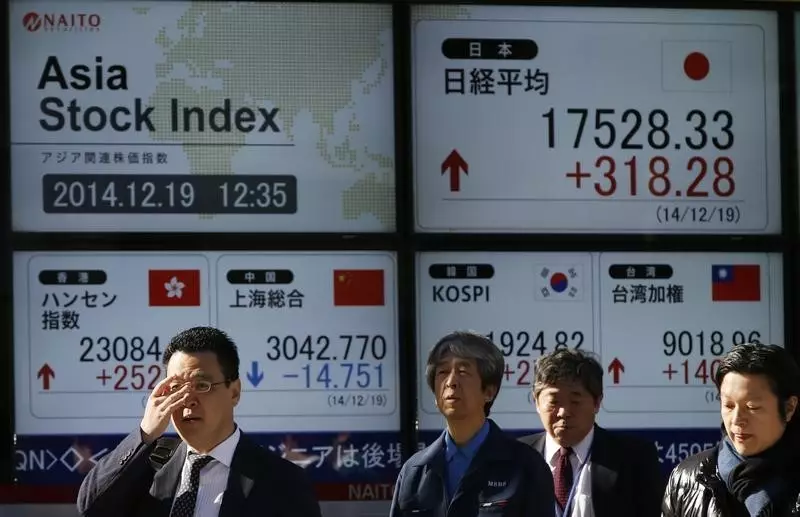As 2024 unfolds, Asian stock markets are facing a tumultuous start, reflecting a broader trend of uncertainty playing out on the global stage. Following a lackluster year-end performance in Wall Street, Asian equities are reacting to a complex web of economic indicators and geopolitical concerns. With several major stock exchanges in the region closed for New Year celebrations, investors are keenly watching potential implications and adjustments to market strategies in response to these global signals.
Chinese Manufacturing Concerns
Chinese stock indices have taken a significant hit, primarily triggered by disappointing data illustrating a slowdown in manufacturing activity. The private purchasing managers’ index (PMI) released on a Thursday highlighted a less-than-expected rise in manufacturing, suggesting that the benefits of government stimulus measures might not be taking hold as anticipated. The Shanghai Shenzhen CSI 300 index experienced a drop of 1.3%, and the broader Shanghai Composite index fell 0.9%.
This decline is compounded by recently published government data confirming a similar trend, indicative that the Chinese economy is grappling with weakening growth momentum. Investors are closely monitoring Beijing’s fiscal strategies, as speculation grows regarding the state’s intentions to inject more fiscal support to bolster an economy that is showing signs of strain.
The repercussions of Chinese market fluctuations reverberate across the region. Hong Kong’s Hang Seng index plunged by 1.7%, significantly affecting major retail players such as Sun Art Retail, whose shares fell dramatically following Alibaba’s announcement to divest from its majority stake. This setback underlines the delicate balancing act that Asian markets are encountering as geopolitical tensions and economic indicators influence investor sentiment.
Conversely, while Singapore’s Straits Times Index remained relatively steady, the country’s economic performance reflects underlying vulnerabilities. A mere 0.1% growth in the final quarter of 2024 fell far below expectations and starkly contrasted with the stronger annual growth of over 4%. This discrepancy reveals the challenges faced by Singapore’s economy as it navigates slowing growth in China and sluggish export demand.
While the Asian stock markets exhibited overall gains in 2024, the latter months have ushered in downward pressures amid strenuous global conditions. The potential ramifications of incoming U.S. President Donald Trump’s promised tariff initiatives against China loom large, posing risks of an escalating trade war that could further destabilize an already fragile economic atmosphere.
In addition, signals from the U.S. Federal Reserve’s December meeting indicate fewer anticipated rate cuts for 2025 due to persisting inflationary pressures, introducing an additional layer of complexity for investors in the region. This uncertain monetary policy landscape is likely to influence capital flows, market sentiment, and economic stability in Asia.
Political turbulence in key Asian regions also amplifies the uncertainty gripping markets. South Korea’s KOSPI index demonstrated relative stability; however, the backdrop of recent political turmoil, including the impeachment of President Yoon Suk Yeol following serious insurrection allegations, hints at possible ramifications for investor confidence. The swift governmental upheaval has raised questions about political stability in the region, further contributing to market volatility amidst an already challenging economic landscape.
As we progress further into the year, investors must remain vigilant, as economic data and political developments evolve. The interplay of regional economic indicators and significant geopolitical events will dictate the trajectory of Asian markets, shaping investment strategies and anticipated outcomes for the foreseeable future.
2024 promises to be a year of both opportunities and challenges for Asian equities as they navigate the turbulent waters of global economics and local political dynamics. Investors will need to adapt quickly to changing circumstances, making informed decisions in a landscape continuously influenced by external factors.

